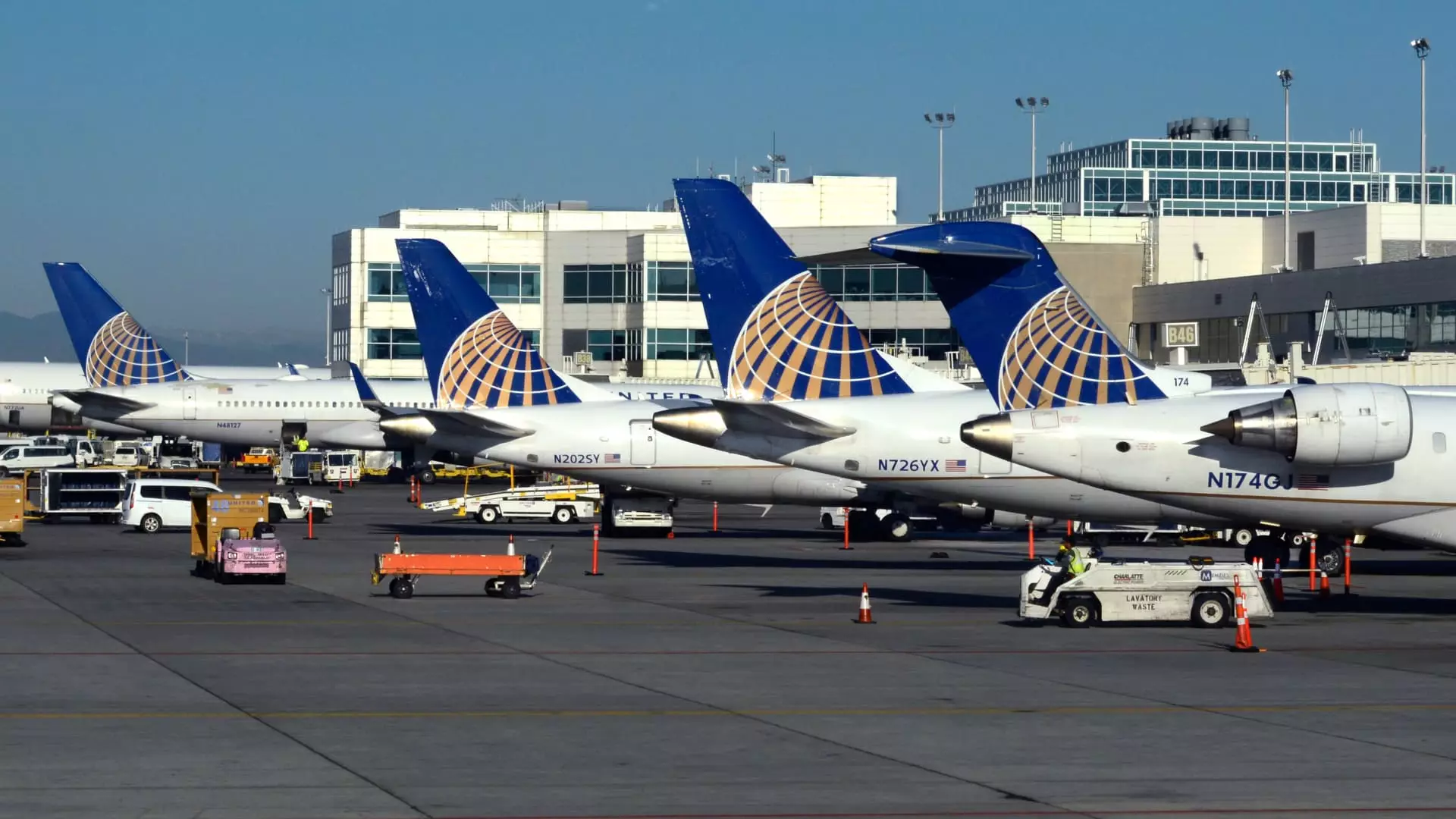United Airlines has recently announced what can only be described as a troubling trend in the travel industry—an increase in fees for annual airport lounge memberships and co-branded credit cards. This move begs the question: at what point do the conveniences of flying become prohibitively expensive? With the added sign-up bonuses for its credit cards, including rideshare credits and discounts on award flights, it seems that the airline is banking on consumer willingness to pay more for perceived luxuries. However, this strategy feels more like a cash grab than a genuine enhancement of customer experience.
Value vs. Cost: A Double-Edged Sword
Richard Nunn, CEO of United’s MileagePlus loyalty program, asserts that the rise in fees is justified because the accompanying perks provide value that exceeds the cost increases. However, one cannot help but feel skeptical. Raising prices on services that were once considered standard—like access to an airport lounge—places additional pressure on travelers who are already dealing with rising costs across the board. It feels disingenuous to claim that the value delivered will outweigh the increased cost when essential travel experiences are being commoditized at an alarming rate.
Passenger Crowding: A Culture of Exclusivity or Accessibility?
The growing trend of charging higher fees is compounded by the issue of overcrowding in airport lounges. With a significant increase in premium-credit-card holders and elite-status travelers, these facilities have faced unprecedented congestion. Instead of alleviating the situation, the airlines appear to be responding to overcrowding by raising entry barriers. This approach sends a troubling message: if you can’t afford the premium, you simply don’t belong. The essence of air travel is shifting from accessibility to exclusivity, leaving a bitter aftertaste for the average traveler.
The Loyalty Trap: Are We Really Getting Rewarded?
Loyalty programs, once designed to honor frequent flyers, are increasingly turning into elaborate traps. United’s strategy to entice new members into co-branded cards, in the name of loyalty revenue, raises ethical questions about the true nature of customer allegiance. As airlines generate staggering revenue—$3.49 billion from “other” sources last year alone—are they really invested in the satisfaction of their customers, or merely seeking new ways to capitalize on existing loyalty? It feels like a betrayal, especially as more fees are added for services that once came standard.
Is This the Future of Air Travel?
As flying becomes ever more expensive and convoluted, one can’t help but ponder the lasting impact on the industry and the traveler. United Airlines, along with its competitors, appears to be charting a course that prioritizes profit over passenger experience. With the aviation industry already recovering from significant losses due to the pandemic, it seems that airlines now view their loyal customers as merely another revenue stream. As a center-left liberal, I firmly believe in equity and accessibility, and the trends we’re witnessing challenge those ideals in a most unfortunate manner. Will travelers continue to accept these changes, or is this the tipping point that pushes them to seek alternatives? Only time will tell, but the road ahead looks increasingly unwelcoming for the average traveler.

